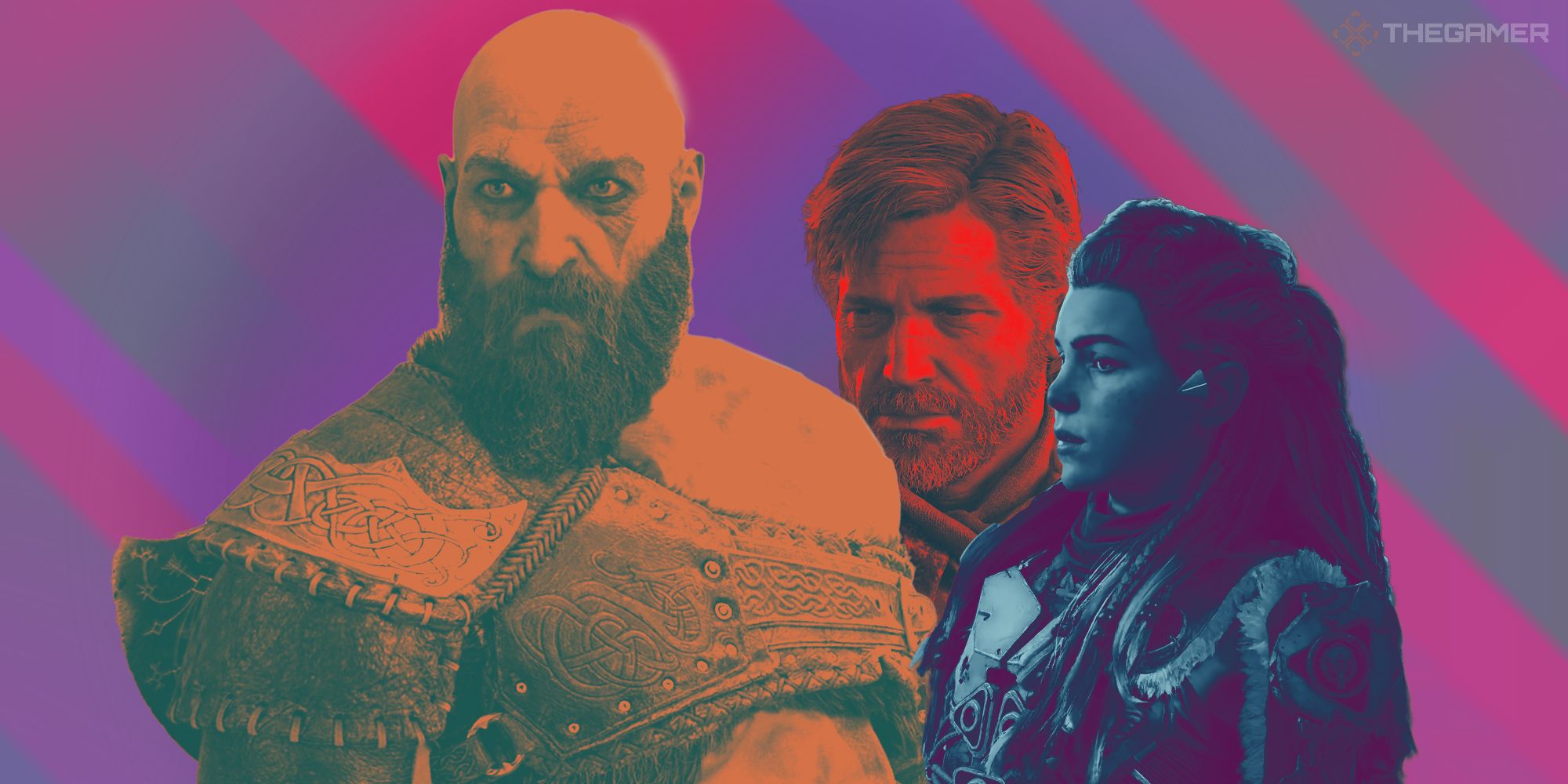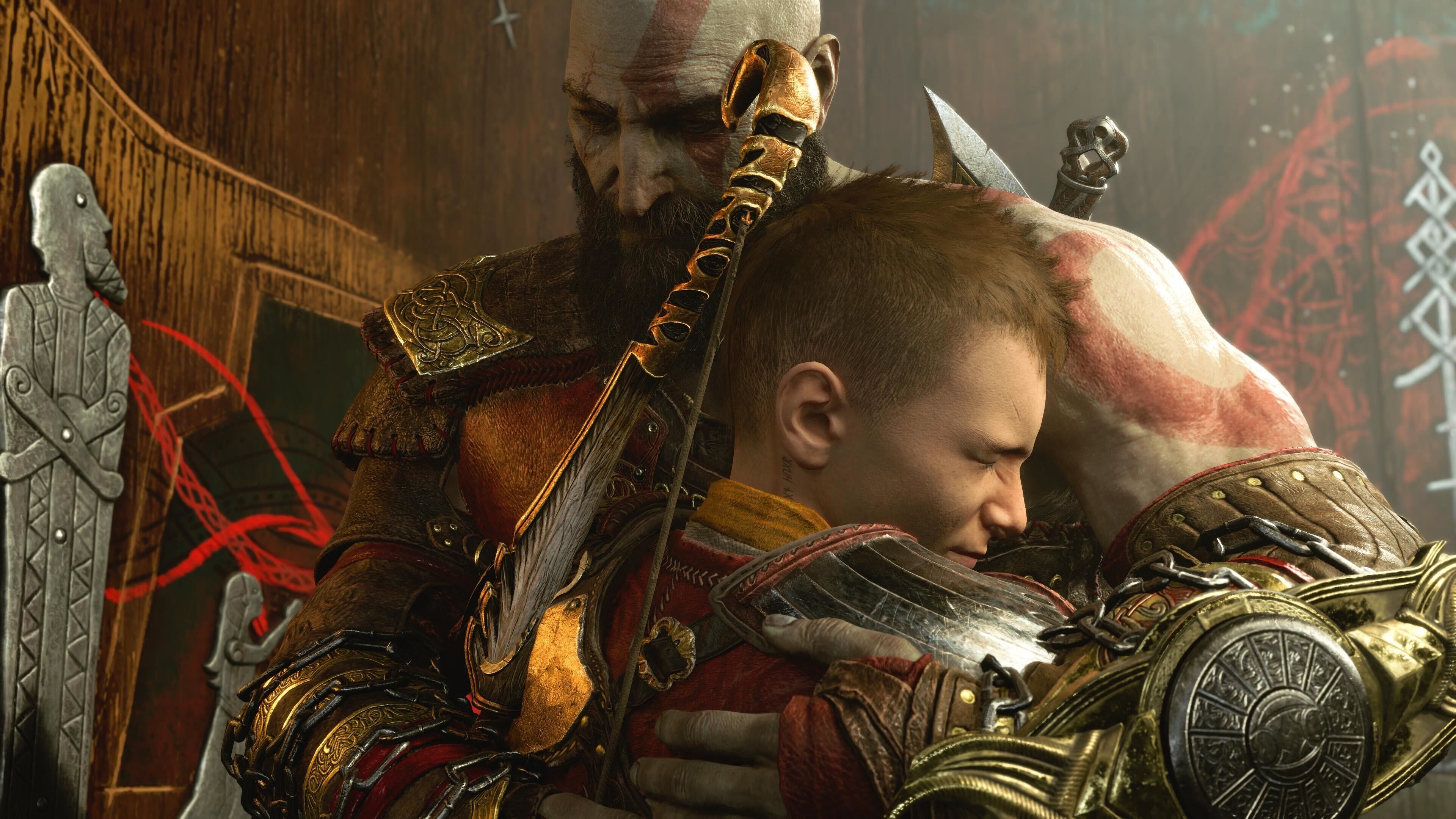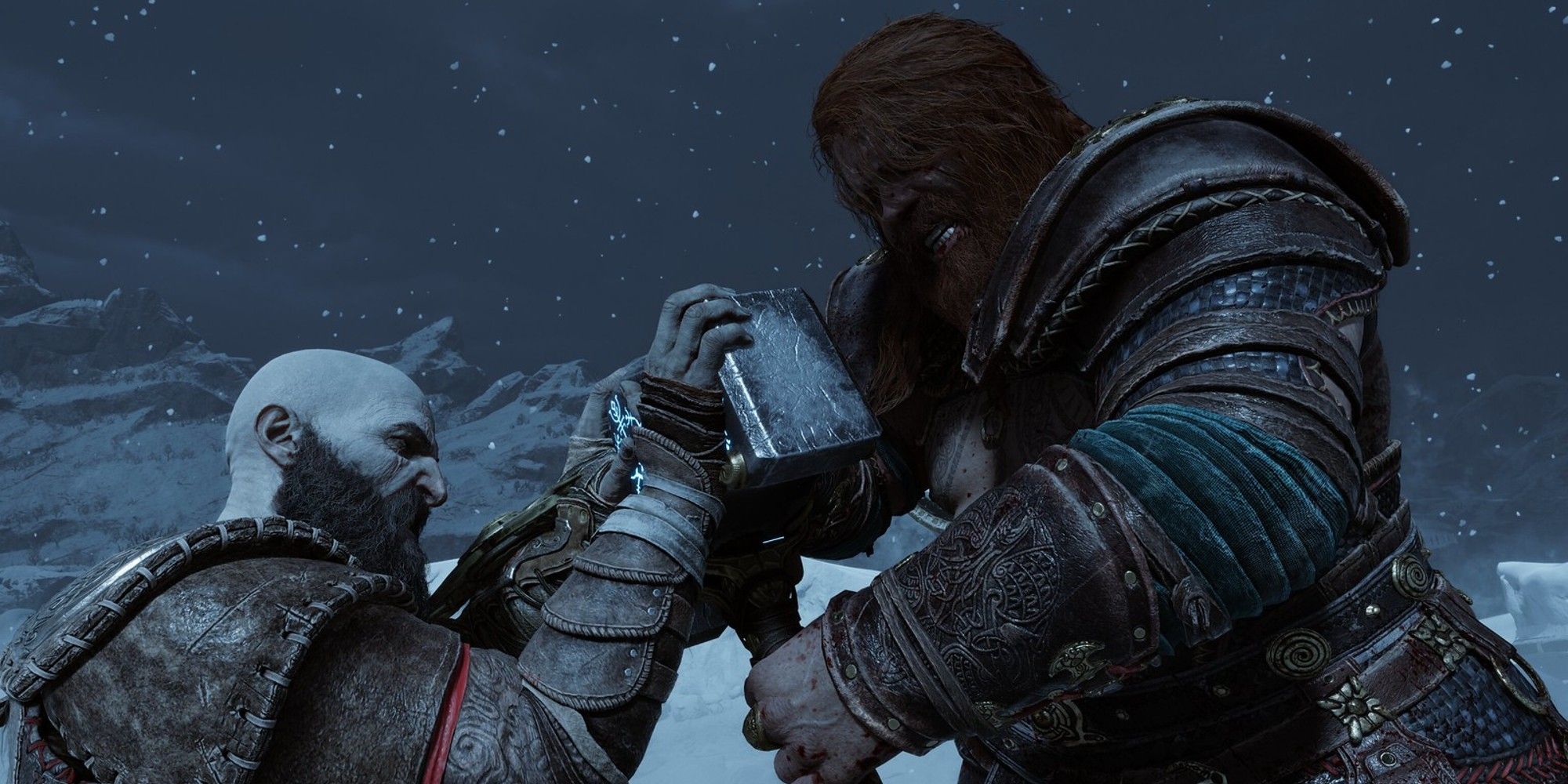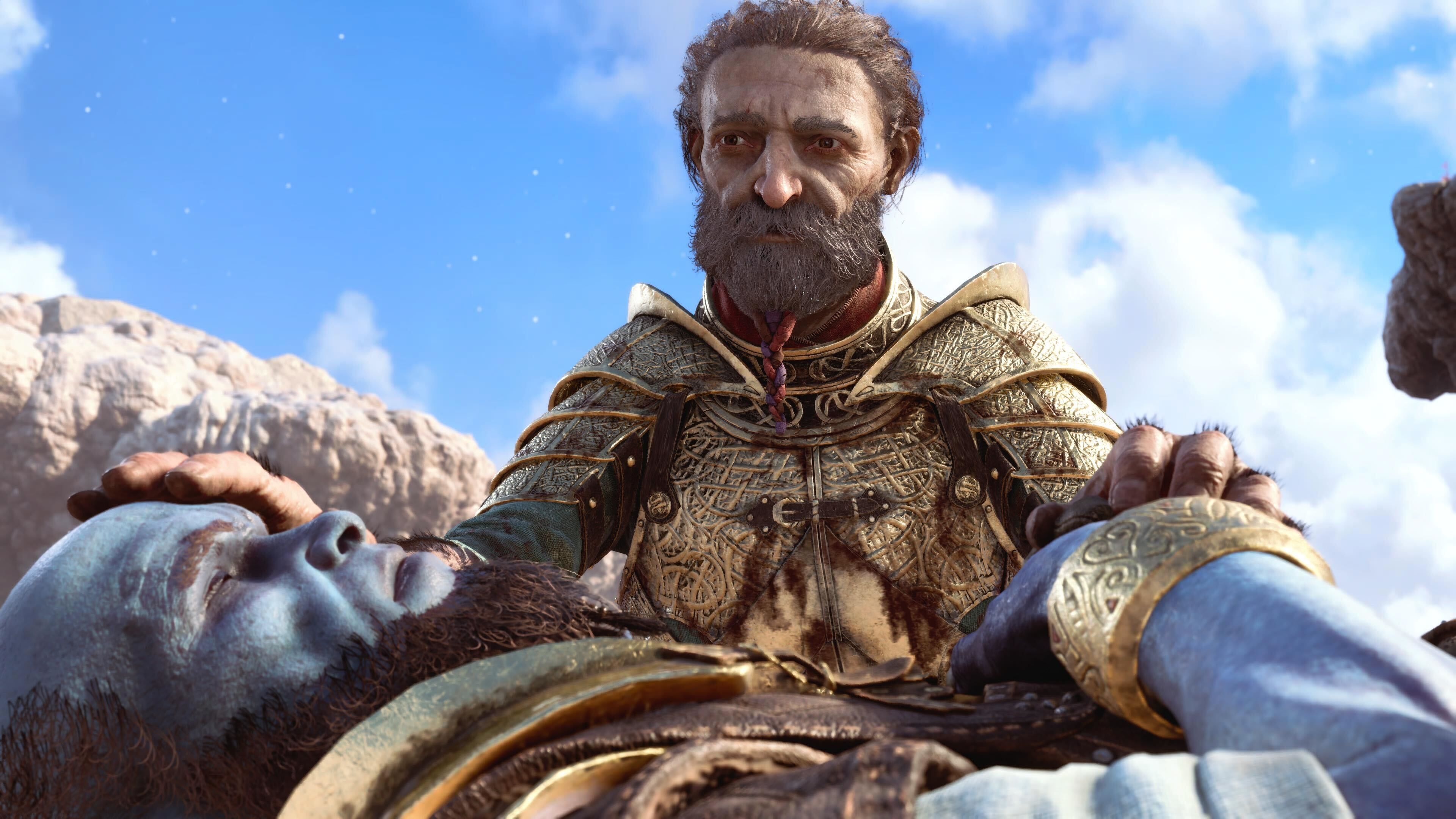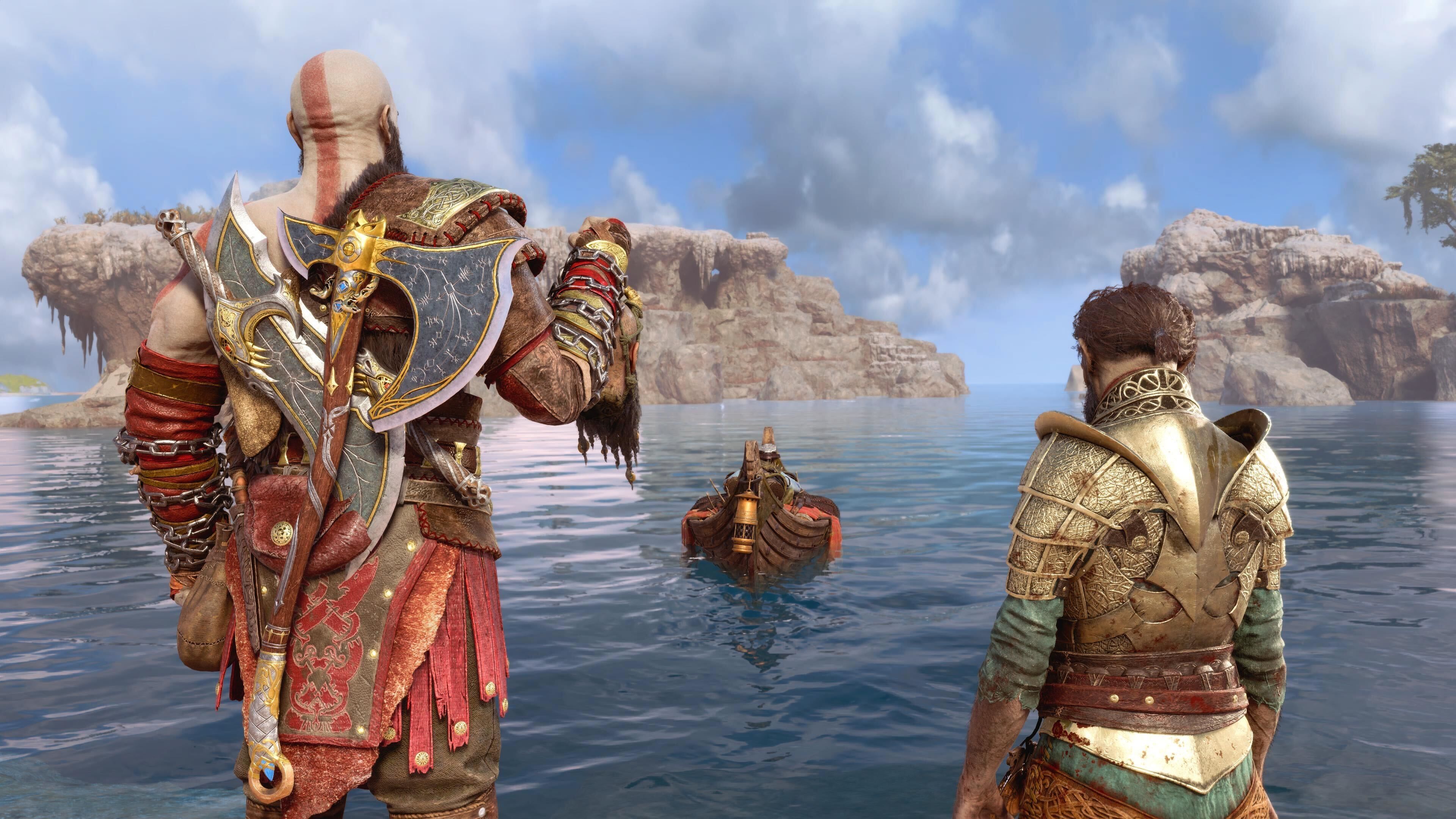God of War Ragnarok is incredible. I didn’t finish it before writing my GOTY list, but if I had, it would have definitely earned a spot on there somewhere. While its opening act is rather slow and sticks too close to the prestige narrative tenets of other Sony blockbusters, the story it sets out to tell and how it expands upon its cast of characters is nothing short of extraordinary. In spite of its own inconsistencies, the final product is wonderful.
It’s engaging throughout with strong writing and engaging combat encounters, but due to its standing as the second and final game in this arc, so much time is spent slovenly assembling all the pieces on a board that won't execute their defining moves for another twenty hours. A lot of time is spent just milling around. Allies must be met, villains must be developed, and our two heroes must confront their inner demons before we even have a chance to empathise with them. None of this is easy to stomach, and I spent a good portion of time rolling my eyes and wishing the game would hurry up and get a move on. But it was all worth the wait.
The final act is a blistering rollercoaster ride of thrilling battles and unexpected revelations that bring things to a close in spectacular fashion. Certain side characters deserved greater attention and the central theme of faith and letting go of past prejudices might not ring true with everyone, but for me, it earned every single emotional crescendo and twist thanks to stellar performances and direction that once again prove the one-shot presentation is far more than a gimmick for hiding loading screens.
Your hand is held a little too much, but this over reliant guidance can be forgiven when the biggest moments are seldom explained to us, and we’re left to interpret everything in our own distinctly nuanced way. Funnily enough, this rings most true after the credits have rolled for the first time, and we’re let back into a world where Odin is no more. The nine realms are safe, and now we are little more than janitors cleaning up after the destruction that once sought to bring about our own oblivion.
Atreus and Angrboda are off on their own adventure that I’m sure will reveal itself in a future game, with Kratos and Freya left to settle into new lives where, for the first time in decades, the threat of death doesn’t linger over their heads. A new era of peace has begun, and there is so much dialogue to be heard as you finish new quests and explore a familiar landscape in search of new treasures and past victories.
Sony Santa Monica could have settled for a generic clean-up of everything we’ve seen before, but a concerted effort is made to help it feel like a living, breathing place with palpable consequences. I got into the habit of revisiting places where nothing was left to uncover, but Kratos and Freya would still comment on past conflicts or situations long resolved. It’s a sign that they’ve both changed, reflecting on the failures and successes we’ve all been through together. It gave my retreading of each realm a purpose that extended beyond a handful of new quests and boss battles.
The act of jumping from place to place is admittedly formulaic, but there is rarely a moment of silence that comes across as deliberate. Kratos and Freya are always conversing, either thinking about their uncertain futures or growth they’ve experienced now the ordeal is over and done with. There is time to collect themselves, leisurely strolling through each realm as they ensure it can heal without compromise. Engaging with this malaise is enjoyable, yet one quest stands out above the rest as an outstanding example of how endgames don’t need to be a pit of mechanical time-wasting, but a fundamental reinforcement of the entire journey.
Brok’s funeral is exactly that, and so brave in its execution.
You’d expect Ragnarok to fade to black in a joyous explosion of deicidal victory, instead it does so in the wake of sombre grief and recollection. A small group of friends mourns the loss of Brok as his flaming grave drifts out to sea, nothing but silence filling the spaces in-between as everyone is too overwhelmed to say a single word. Sindri doesn’t forgive Kratos, he hardly even acknowledges him, and has every right to blame him and Atreus for his brother’s death. He says goodbye and walks away, refusing to believe that everything is suddenly going to be okay because they won.
Refusing to neatly tie a bow on things and leaving us lingering in eternal regret is such an unexpected move, even if an eventual successor revisits Sindri’s grief and has his reclaim the bubbly personality we came to love in the first place. So many games and films would reverse an unexpected death to avoid backlash and keep us all happy, while Ragnarok ends with a declaration of this failure, and how despite saving the world and himself, Kratos must still live with the bloodshed he is partly responsible for.
This is a game about acknowledging your past mistakes and moving on from demons that once defined you, but the cost of loss and those hurt in the process never leaves you, it’s a curse you come to live with and make up for however possible. Kratos knows that nothing will bring Brok back or keep Atreus by his side forever, so he settles to better himself and the world in other ways, knowing that deep down he will never be forgiven, nor deserves the family he has sought for decades.
For a game that so many people have labelled as predictable and rote, Ragnarok does things that I’ve seen nothing else in the medium accomplish, and that’s worth celebrating.

